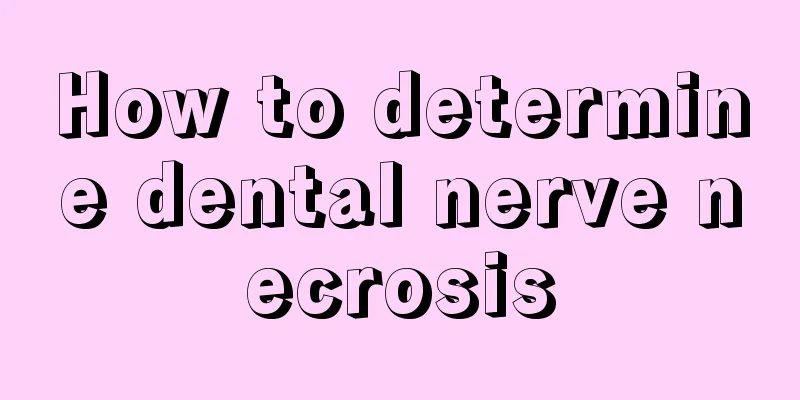Why do my hands and feet always sweat

|
When observing their hands and feet, people may find a problem, that is, their hands and feet often sweat. Sweating hands and feet generally reflects the health of the body. When the health is not particularly good, it is easier to sweat. Why do hands and feet always sweat? If people often have such problems, it is necessary to understand the causes of sweating hands and feet. Excessive sweating of hands and feet Excessive sweating of hands and feet, medically known as "localized hyperhidrosis", often occurs in young and middle-aged people with large mood swings. The treatment of "localized sweating syndrome" generally uses vitamin B1, oryzanol, diazepam tablets, etc. If you sweat a lot, you can take some anti-acetylcholine drugs such as atropine or propantheline. However, tranquilizers and anti-acetylcholine drugs have certain side effects and are not suitable for long-term use, so they are often used in conjunction with traditional Chinese medicine treatment in clinical practice. Cause Sweating of hands and feet is normal and is a normal physiological reaction. But if your hands and feet sweat excessively, it is a functional local abnormal sweating of unknown cause. Excessive sweating of the hands and feet is also known as "excessive sweating of the hands and feet" or "excessive sweating of the hands and feet." The secretion of sweat glands is controlled by the sympathetic nervous system, and hyperhidrosis of the hands is caused by excessive tension of the sympathetic nervous system for unknown reasons, such as tension, excitement, stress or high temperatures in summer, which causes abnormally increased sweating of the palms. It can also be due to damage to the sympathetic nerves or abnormal reactions, which increase the secretion of choline acetate, causing the eccrine sweat glands to secrete excessive sweat. Traditional Chinese medicine believes that excessive sweating of hands and feet is caused by spleen and stomach dysfunction. [2] clinical Hyperhidrosis of the hands and feet is an overexcitation of the sympathetic nerves, but it often causes problems in study, work or social life and requires medical treatment. The palms of patients are wet most of the time, and long-term wet hands often cause peeling, which is detrimental to appearance. School-age teenagers often have their test papers wet due to excessive sweat from their hands, which affects their exams. Often the test papers become wet before they are even written. Teenagers are afraid to hold hands with others, and even shaking hands becomes a problem. In severe cases, the palms may even Symptoms of eczema dermatitis appear. As adults, this also causes inconvenience to them in work and social activities. Patients with hyperhidrosis often have sweaty feet, but their sweat usually has no odor, which is different from patients with body odor. As for patients with body odor (axillary hyperhidrosis), it is more related to genetic constitution, mainly because the sebaceous glands in the armpits are well developed. The incidence rate is higher than that of hand hyperhidrosis, and the trouble caused is also more common. For example, there are always yellow stains on my clothes that can’t be washed off, and I dare not wear sleeveless tops. The most important thing is that when I get close to people, I have an inexplicable psychological burden and fear. Hyperhidrosis patients always have excessive sweating, dampness and coldness on their palms, soles of feet and armpits, no matter whether it is scorching summer or freezing cold. Sometimes the sweat appears in beads, and it is more serious when they are nervous. I often get the paper wet when writing, the keyboard wet when typing, and I dare not shake hands with others. People with hyperhidrosis of the hands and feet may sweat profusely and on their palms for no apparent reason in crowded places, when giving reports in meetings, when meeting strangers, when meeting familiar leaders, when they are nervous and excited, when exercising, when meeting the opposite sex, or when discussing sensitive topics. [3] harm There are two types of hyperhidrosis: systemic and localized hyperhidrosis. People with systemic hyperhidrosis often have moist skin and experience paroxysmal sweating. Localized hyperhidrosis is common in the palms, soles, armpits, followed by the tip of the nose, forehead, pubic area, etc. It usually occurs in adolescence. Patients often have peripheral blood circulation dysfunction, such as cold, wet, cyanotic or pale skin of the hands and feet, and susceptibility to frostbite. Excessive sweating of the feet causes the soles of the feet to become soaked and white due to poor evaporation of sweat, often accompanied by foot odor. When the armpits and pubic areas are sweaty, the skin in these areas is thin and tender, and is often damp and rubbed, which can easily lead to abrasions and erythema, accompanied by folliculitis, furunculosis, etc. [4] In winter, 'sweaty feet' lose heat 25 times faster than 'dry feet' and are more susceptible to frostbite. When this happens, the body automatically shuts down the circulation system of the superficial skin, resulting in insufficient blood supply to the feet. Inadequate blood supply means that the skin tissue around the feet dies, causing cracks in the feet. [5] Excessive sweating of hands and feet may seriously affect study, social interaction, and work, causing great distress. Hyperhidrosis can occur at an early age (around 6 years old) and becomes more obvious during puberty. The most troubling part for patients is excessive sweating on the palms, armpits, and soles of the feet. Young people's emotions are more difficult to control. They are easily nervous, anxious, shy, and afraid, which makes them sweat more. The more anxious they are, the more they sweat, creating a vicious cycle. This may cause the patient to become withdrawn, introverted, poor at interacting with others, lack confidence in social situations, and even have low self-esteem, which will also affect learning and job hunting. [6] treat To cure sweaty hands and feet, we must first find out the cause and determine whether it is pathological hyperhidrosis. Pathological hyperhidrosis is caused by certain diseases. For example, patients with systemic diseases such as tuberculosis, rickets, some hyperthyroidism, diabetes and mental disorders may develop secondary hyperhidrosis of the hands. However, pathological hyperhidrosis is accompanied by other symptoms besides excessive sweating. Excluding pathological diseases, the most effective way to cure sweaty hands and feet is mainly herbal Chinese medicine conditioning and surgical treatment. Other methods such as ionization therapy and antiperspirant lotion can only temporarily suppress excessive sweating but cannot fundamentally solve the problem of sweaty hands and feet. The current surgical method has been changed to thoracoscopic thoracic sympathectomy. Although it is effective quickly, patients often experience compensatory hyperhidrosis sequelae after surgery. Therefore, in unavoidable situations, it is more appropriate to give priority to herbal conditioning. Traditional Chinese medicine believes that excessive sweating of hands and feet is related to physical fitness, endocrine system, and organ dysfunction. It is generally caused by congenital deficiency (manifested as excessive sweating of hands and feet since childhood) or acquired malnutrition (no sweat before, but only in recent years). The patient has no disease basis. In such a situation, you should pay attention to quitting smoking and drinking, and eat less spicy and greasy food. For sweating caused by damp-heat in the spleen and stomach, Chinese medicine can use Sanren Decoction and Shenfu Baizhu Powder. It is recommended to eat more yam, coix seed, and white atractylodes. From the perspective of traditional Chinese medicine, sweat is a metabolic product of body fluids, and blood and sweat have the same origin. Therefore, excessive sweating will consume energy, damage body fluids and harm heart blood. Although there are no symptoms that affect health, it should not be ignored. [7] 1. Excessive sweating of hands and feet is medically known as "localized hyperhidrosis". You can take some anti-acetylcholine drugs such as atropine or propantheline appropriately. However, drugs such as tranquilizers and anti-acetylcholine have certain side effects and are not suitable for long-term use. Therefore, they are often used in conjunction with traditional Chinese medicine in clinical treatment. [8] 2. According to traditional Chinese medicine, excessive sweating of hands and feet is caused by spleen and stomach dysfunction, which can be divided into the following two types: deficiency and excess: 1. People with weak spleen and stomach. The spleen and stomach have the function of transporting water and eliminating dampness. Once this function is weakened, dampness and heat will accumulate in the body. Dampness and heat tend to move downward, causing excessive sweating at the extremities, especially the feet, which is more common, accounting for 70% to 80%. For those with weak spleen and stomach, it is recommended to cook porridge with bitter gourd, coix seed, yam, red dates, lotus seeds and other ingredients that have spleen-strengthening effects. In addition, you should strengthen exercise. Traditional Chinese medicine believes that exercise can replenish yang energy and change physical weakness. 2. Patients with spleen and stomach excess syndrome. It is mostly caused by excessive drinking and overeating spicy, fatty and sweet foods, accompanied by symptoms such as bad breath, bitter mouth, constipation, yellow and turbid urine, and thick and greasy tongue coating. It is recommended to drink less alcohol and try not to eat spicy food. 3. Another method is surgical treatment. The sympathetic nerves that control the sweat glands in the hands are located in the second and third thoracic vertebrae, which are approximately located on the nipple line, and a little higher on both sides of the back spine. As long as the sympathetic nerves in these two sections are cut off, the purpose of stopping sweating in the hands can be achieved. Although surgical treatment for hand sweating is indeed effective, compensatory sweating often occurs after the hand sweating stops. Compensatory sweating means that after surgery, sweating in the upper body (above the nipples) almost stops, while the lower body is often wet. Except in extremely cold weather, compensatory sweating persists and does not decrease over time, but may increase instead. This is one of the most unbearable sequelae after surgery. [2] prevention 1. Keep your hands and feet clean and dry. 2. Soak the affected area in 5% alum solution every day, or in water boiled with pine or eucalyptus leaves. [5] 3. The method of fumigation with traditional Chinese medicine: Use Atractylodes lancea, Sophora flavescens, Phellodendron chinense, Kochia scoparia, Dictamni cortex, Gypsum, Rhizoma Chuanxiong, Angelica dahurica, Artemisia argyi, Licorice and other traditional Chinese medicines to boil into medicine juice. First, use hot air to fumigate your feet for about 10 minutes, and then soak them for about 20 minutes. It has the effect of clearing heat and cooling blood, and can prevent excessive sweating. [9] 4. Wear loose shoes and socks with good breathability to help the evaporation of sweat and avoid skin problems such as athlete's foot and dermatitis. [5] |
<<: Is sweating in hands and feet due to Yin deficiency or Yang deficiency
>>: Is it okay to soak your feet until you sweat all over?
Recommend
Feeling dizzy after quitting smoking
Smoking is an indispensable part of many people&#...
What does it mean when a baby has a birthmark on his shoulder?
A person may have birthmarks on any part of the b...
What are the early characteristics of cervical cancer? What are the early symptoms of cervical cancer?
Cervical cancer is a common disease among women a...
Tips for making your own shoe soles non-slip
Many people have this confusion in life, that is,...
Is esophageal cancer contagious through saliva?
Some people believe that esophageal cancer is a c...
Preoperative and postoperative care for thyroid cancer patients
How should patients with thyroid cancer be cared ...
What is the best way to treat sweaty and smelly feet?
Nowadays, many people often encounter the problem...
Pharyngitis causes severe cough, this is how you should stop the cough
Pharyngitis is a relatively common chronic diseas...
Diagnosis of rectal cancer——painless colonoscopy
Rectal cancer is a malignant disease that serious...
Does practicing Tai Chi hurt your knees?
When we are in the park, we often see many old me...
Is flat erosive gastritis serious?
Some people don't know much about flat erosiv...
Three major signs of colorectal cancer when sleeping at night
There is actually no fixed statement to clearly p...
Symptoms of abnormal neurological function regulation
Nerves are an important part of the human body. I...
Several diets suitable for small cell lung cancer
What are some diets suitable for small cell lung ...
Does calcium increase heart rate?
As living conditions are getting better and bette...









